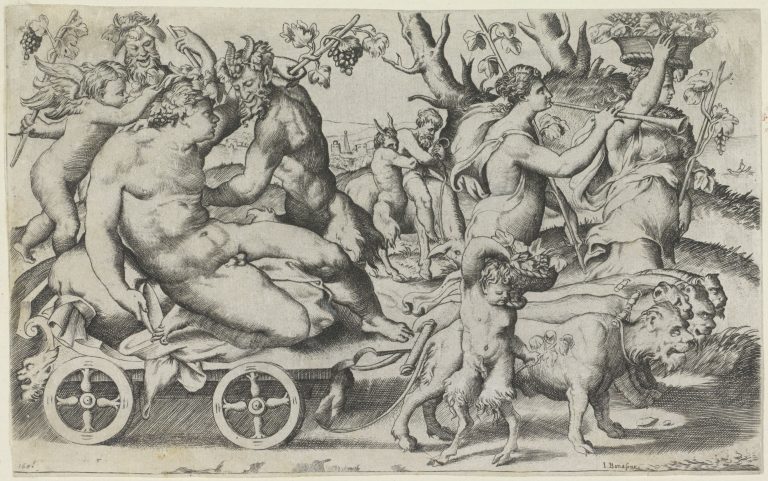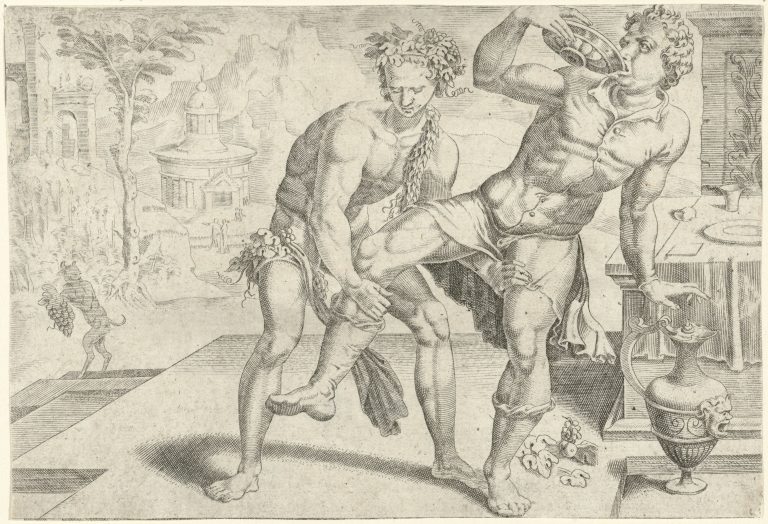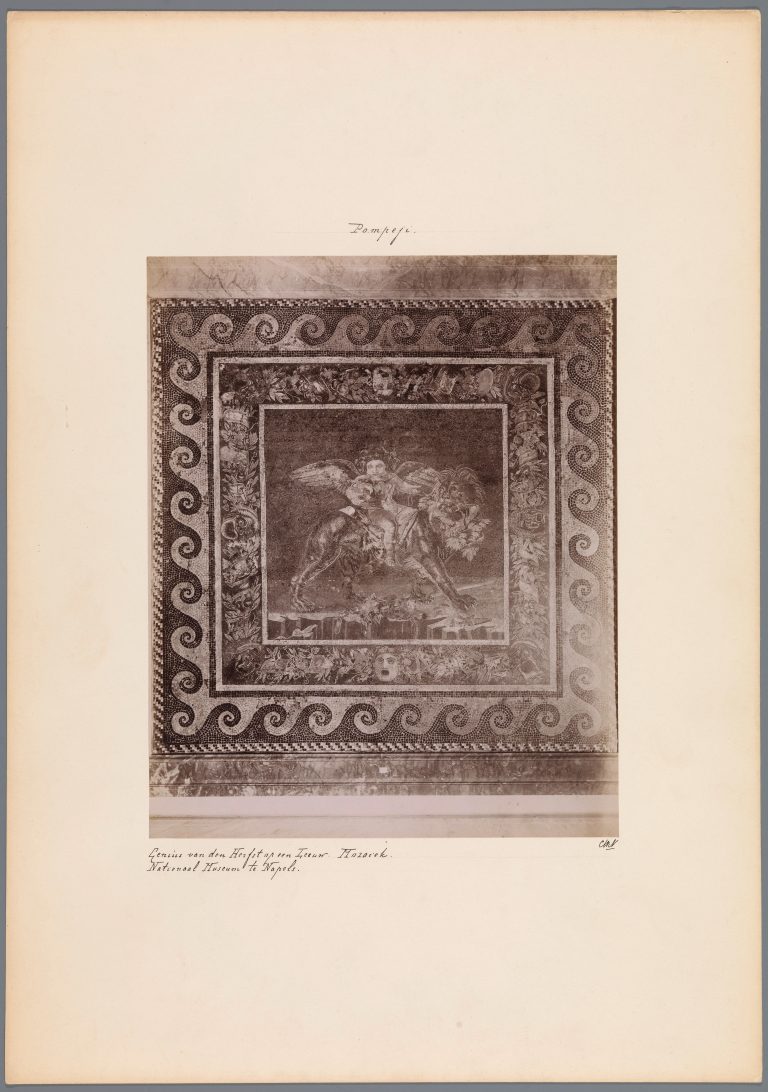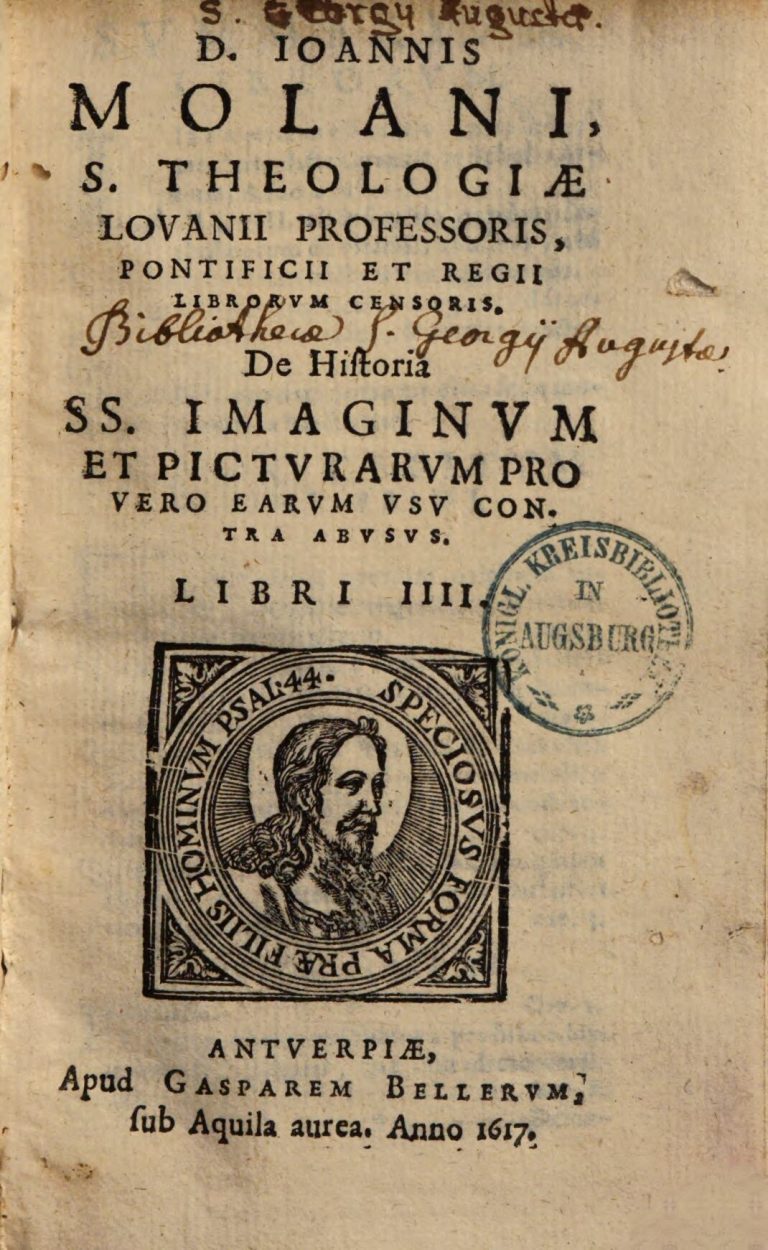
Rijksmuseum, Amsterdam, http://hdl.handle.net/10934/RM0001.COLLECT.183785
Molanus condemns and ridicules the pagan gods and focusses on Bacchus.
“In order to show what use can be made of certain images of false gods, let us turn our attention to the poetic fiction of Bacchus, of which Cornelius of Sneek, a theologian of the order of Friars Preachers, has produced such a beautiful philosophical commentary. He writes, in his second sermon on drunkenness, that the poets openly described Bacchus in such a way that it is easy to see how dishonourable it is to indulge in drunkenness. They represented him as a monstrous being, in the age of childhood with an effeminate face, bare chest, horned head and riding a tiger. They imagined him as a child because, just as smoke obscures the air, so the vapour of wine impairs the minds of drunken men and deprives them of all knowledge and prudence. This is why we find in the psalmist: ‘They are stupefied and move as if they were drunk, all their wisdom swallowed up. He who is drunk, like children, cares for nothing.’ Hence Ovid’s line: ‘Responsibility flees and vanishes in the abundance of pure wine.'”
Hactenus ex Minutio. Ut autem intelligatur ex Deorum falsotum picturis quibusdam quam pulere circa poeticam fictionem Bacchi Cornelis Snecanus, Ordinis Praedicatorum Theologus, philosophetur. Scribit ille Sermone secundo de ebrietate, poetas Bacchum publice sic descripsisse, ut facile cognosceretur quam indecorum esset ebrietatem sectari. Pingebant namque eum monstrosum aetate puerum, facie muliebrem, pectore nudum, capite cornutum, quitantem super tigridem. Aetate puer fingebatur, quia sicut sumus aerem obscurat, ita evaporationes ebrii intellectum obnubilant, ut omni scientia et prudentia privetur. Unde est apud Pasalmistam, ‘Turbati sunt et moti sunt sicut ebrius et omnis sapiential eorum devorata est. Est etiam Ebriosus, puerorum more, de nullo solicitus.’ Inde Ovidius: ‘Cura fugit, multo diluiturque mero.'”




Molanus 1996, 298.



